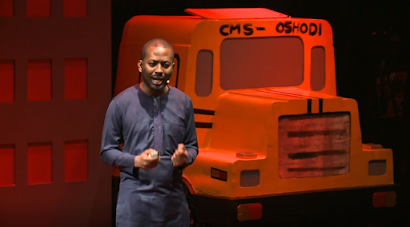A Serial-sly Good Podcast: Serial and the Case of Hae Min Lee
True Crime. It's a pretty big genre lately, with numerous tv shows, movies, and books covering all types of grisly crimes, both real and fictional. A whole new generation of crime buffs have been raised on these films and literature, and with the growing genre and fanbase, a new way of consuming gritty and horrifying crime stories has opened up: podcasts. One in particular that is becoming well known recently, is Serial hosted by Sarah Koenig. Currently, Serial has three seasons — each around 10-12 episodes — which cover one true crime story each. The first season, and the beginning of the show, starts with the story of Hae Min Lee, a highschool student who was murdered in 1999, and the conviction of her ex-boyfriend Adnan Sayed, from the perspective of almost fifteen years later.
So who is Sarah Koenig, and why is she telling this story? Well, it’s not because of a personal connection, or because its her job. Koenig makes it clear in her first episode of the show that she is not a criminal investigator, detective, crime journalist, or that she even knew about the story until shortly before she began investigating. According to her biography from the Steven Barclay Agency, Koenig was a reporter at one point, although it is no longer her profession. She began her career as a newspaper reported, with well know newspapers such as the New York Times and the Baltimore Sun under her belt, and covered a few different topics, including a little bit of crime reporting and politics. But for the ten years leading up to the publishing of her podcast, Koenig was actually a producer for the radio show This American Life; so while she has a little more experience than she might have said in her first episode, she’s still certainly no expert on the subject. The only real reason that Koenig seems to be telling the story of Hae Min Lee and Adnan Sayed is because, as she puts it, “This case fell into her lap.” Hae Min’s story came to Koenig actually because of a different story: she had reported about a defense attorney who was disbarred due to mishandling clients' money, the same attorney that had actually served as Sayed’s lawyer during his case. Saad Chaudry, Sayed’s best friend, and his older sister Rabia Chaudry heard about the case, and emailed Koenig asking her to look into it. This is where the podcast begins, as Koenig investigates on behalf of these two siblings who believe in their friends’ innocence.Obviously, there’s a particular
audience this type of podcast is going to appeal too. Crime buffs, fans of court
cases and true crime stories would all get their kicks from listening to Koenig
carefully lay out the timeline of events, the people involved, and the evidence
against Syed. It’s an interesting story, with plenty of room to doubt on either
side whether Syed is actually guilty of killing Hae Min Lee. The purpose behind
Koenig reporting her investigations into a podcast could be two-fold. On the
one side, true crime is proven to be a popular form of entertainment and
fascination for a lot of people from many backgrounds. It’s possible that
Koenig just found a golden ticket of a case that could hold people’s interests,
with enough twists and turns to provide an interesting narrative. Personally, I
doubt that this was her only intention, but she was certainly successful. The
first season of Serial was highly acclaimed, and was one of the first
podcasts to be popularized nationally, and broke
Itunes record on its release in 2014. But the other potential purpose has
also been achieved: a re-examination of Hae Min’s murder and who the culprit may
be. Syed and his lawyers filed new appeals with the Supreme Court in 2019, and
while they did not grant him a new trial, it seems clear that the case has been
given new attention and focus, which could lead to a definite confirmation of
Syed’s guilt or his innocence.
Koenig herself does not seem to
have picked a side either, and the evidence she provides does not necessarily sway
the audience one way or the other either. Koenig relies on a mixture of logos,
pathos, and ethos in the podcast, and while some believe she may be more
sympathetic towards Syed’s innocence, she mentions multiple times in the
episodes that to her the evidence can be seen either way. Koenig provides
journal entries from the victims, interviews, and testimonies from those
involved in the case, as well as general timelines of events, preventing a
combination of all three types of evidence. Logos from the timelines and laying
out of facts that are confirmed, pathos from the emotionally tied thoughts and
opinions of those involved in the case and Hae’s journal entries. Ethos is
possibly what she is lacking the most of, as she makes it clear that she is not
an expert in the case, and that the audience cannot completely trust anything
that the people she interviews are saying because they may not remember clearly
due to the time gap, or they could be lying. It’s a complicated web that Koenig
exposes, which is exactly what makes the show so gripping, and led to its rise in popularity and probably the true crime genre as a whole.




Comments
Post a Comment